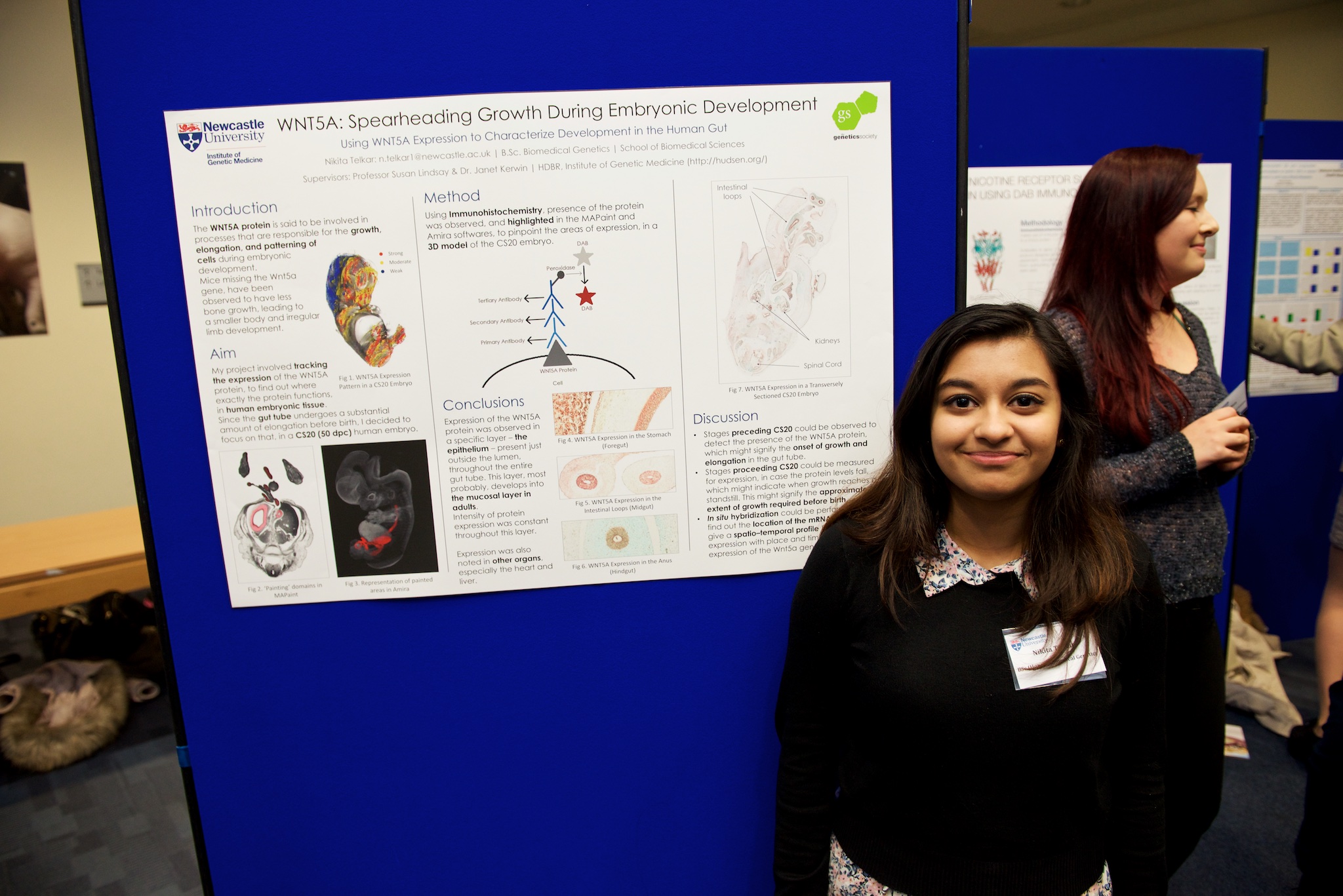2016 Participants
 Nikita Telkar
Nikita Telkar
The WNT5A protein is an essential part of a number of processes which are responsible for the growth, elongation, and patterning of cells in a developing embryo. It is also involved in the regulation of cell maintenance in adults. Low levels of the protein in mice has been shown to cause bone growth deficiencies.
This project focused on the developing gut, as it undergoes a significant amount of elongation before birth. Presence of the protein was measured in a 50 days-post-conception (Carnegie Stage 20) human embryo. Protein expression was observed in the probable epithelial layer of the gut tube – the oesophagus, the stomach, the intestines, and the anus. Protein expression was also noted throughout the horizontal plane of the embryo, and in other organs. This provides support for the theory that the WNT5A protein is present at large, and is extremely vital, in the developing embryo.
Funding source: Genetics Society
Supervisor: Prof Susan Lindsey
